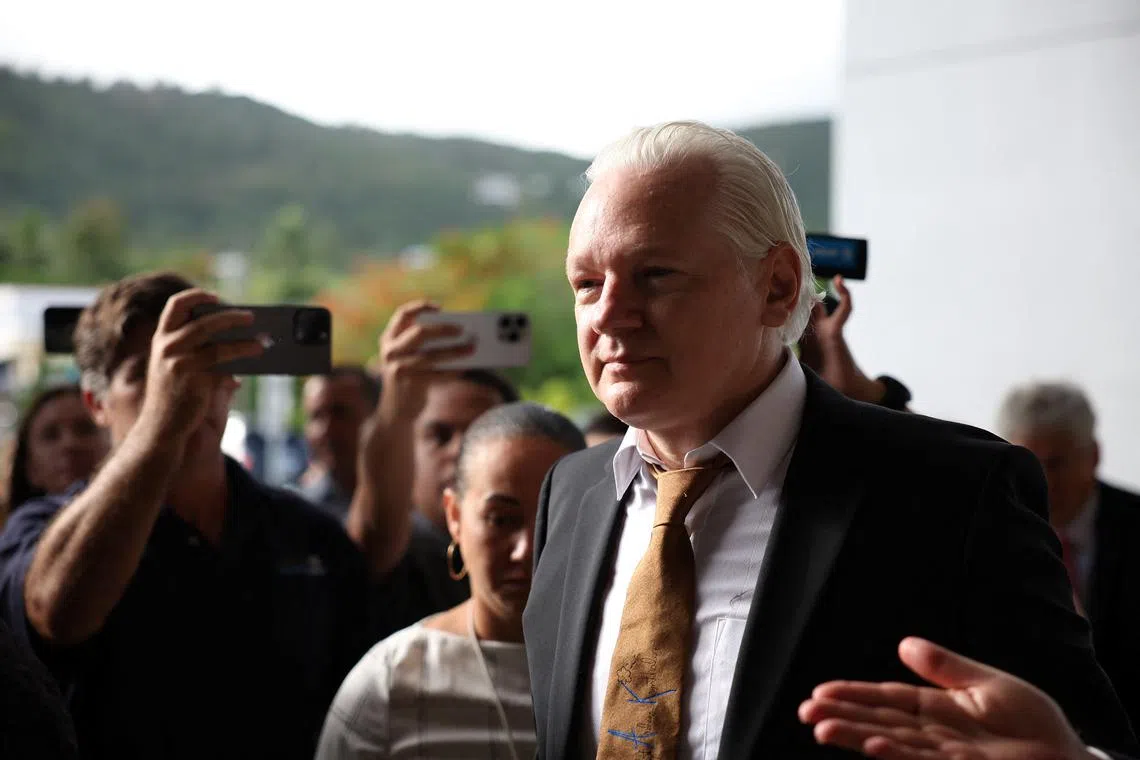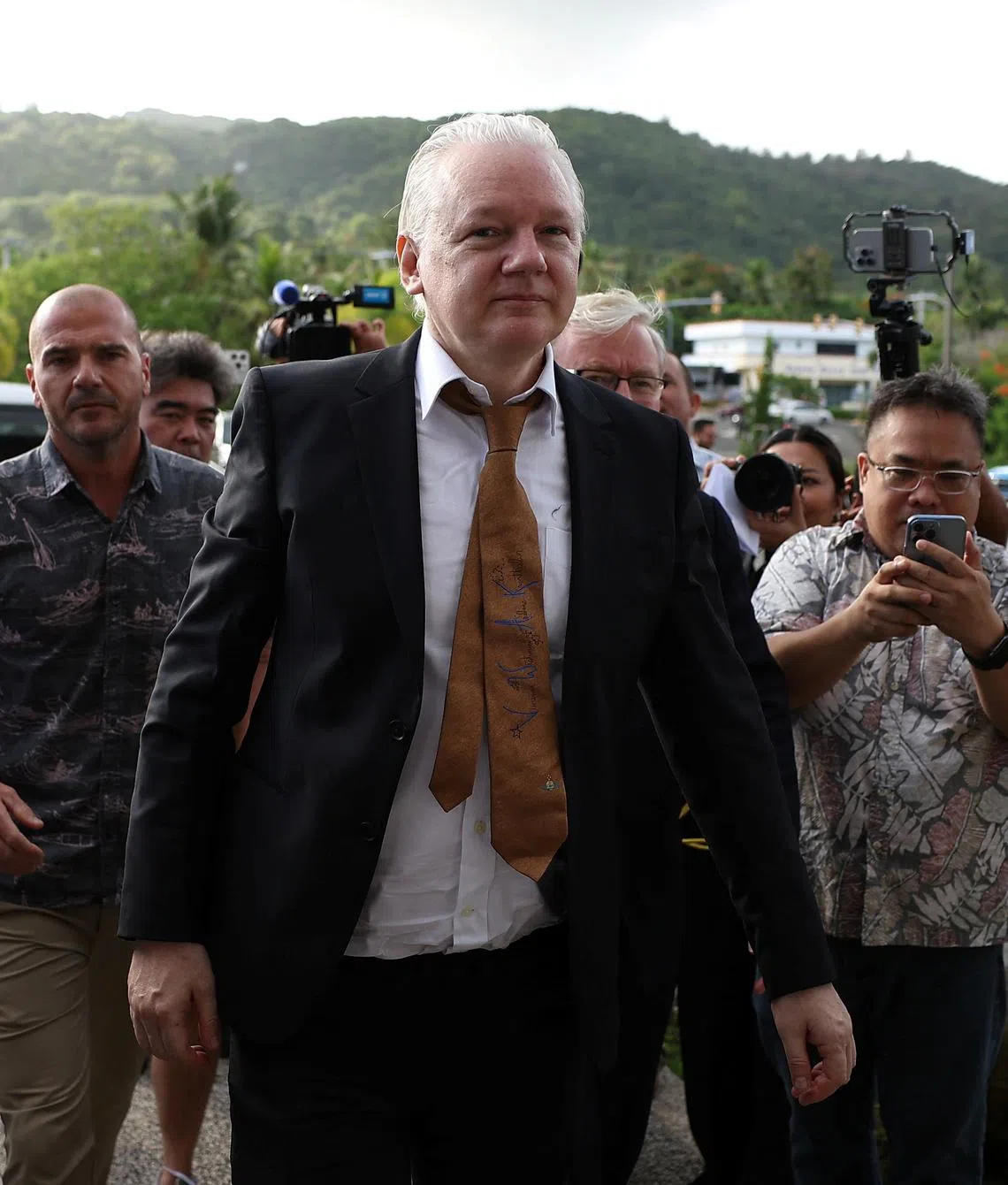WikiLeaks’ Assange arrives in the Mariana Islands for US plea deal
Sign up now: Get insights on Asia's fast-moving developments

WikiLeaks founder Julian Assange arrives at a United States District Court in Saipan, Northern Mariana Islands, on June 26.
PHOTO: REUTERS
SYDNEY - WikiLeaks founder Julian Assange on June 26 reached the Northern Mariana Islands, where he is expected to plead guilty to violating US espionage law, a move that will set him free and allow him return home to Australia.
The 52-year-old has agreed to plead guilty to a single criminal count of conspiring to obtain and disclose classified US national defence documents, according to filings in the US District Court for the Northern Mariana Islands.
The US territory in the western Pacific was chosen due to Assange’s opposition to travelling to the US mainland and for its proximity to Australia, prosecutors said.
“Julian Assange has arrived on US territory at Saipan Island to formalise the plea deal that should never have had to happen,” WikiLeaks said on X.
Assange is due to be sentenced to 62 months of time already served at a hearing in Saipan in the Northern Mariana Islands, on June 26 at 9am local time (7am Singapore time).
Australian-born Assange spent more than five years in a British high-security jail and seven years holed up in the Ecuadorean embassy in London as he fought accusations of sex crimes in Sweden and battled extradition to the US, where he faced 18 criminal charges.
His supporters view him as a victim because he exposed US wrongdoing and potential crimes, including in conflicts in Afghanistan and Iraq. Washington has said the release of the secret documents put lives in danger.

Assange is due to be sentenced to 62 months of time already served at a hearing in Saipan in the Northern Mariana Islands, on June 26.
PHOTO: REUTERS
Australian governments have been advocating for his release and has raised the issue with the US several times.
“For any Australian to be in a position of being in protracted incarceration without legal resolution is a situation where the government should be advocating on their behalf, and we have been doing that,” Deputy Prime Minister Richard Marles told ABC television on June 26. REUTERS


